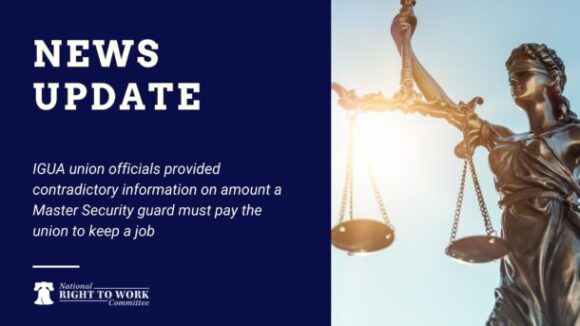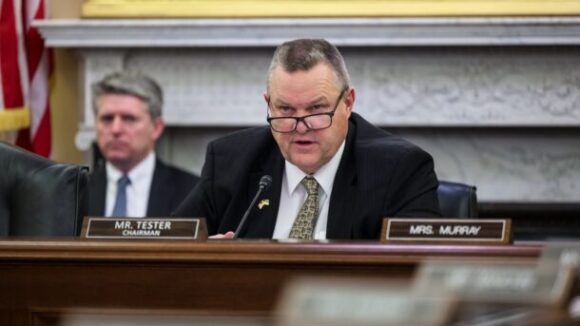GOP’s ‘Dangerous Liaison’ With Union Bigwigs
Josh Hawley distances himself from pro-Right to Work pledges, aligning with union bosses like the Teamsters, despite their history of corruption.
Readers of this blog are aware that the AFL-CIO alone will spend over $53 million over the next few months to elect candidates who will vote to eliminate workplace elections.
In fact, when you add its member-unions spending total, the AFL-CIO plans on spending over $200 million to buy Congress in the next few months. This is still just the tip of the iceberg given that we have already reported on over $400 million already in the political pipeline. It is easy to see that reports of Big Labor spending up to ONE BILLION DOLLARS between 2006 and November 2008 to buy a forced-unionism Congress are easy to believe. The bosses give us a peek at what is in store.
From the Washington Post:
. . . AFL-CIO political director Karen Ackerman sketched out the plans of the labor coalition, which is expected to announce its official endorsement of Obama in the next few days. The coalition has budgeted $53.4 million for the 2008 campaign — more than the $48 million it spent in 2004 — and it expects its 56 member unions to spend more than $200 million overall on electing Obama and congressional Democrats. It will deploy 250,000 volunteers to reach a total of 13 million union members and their families, she said, and use more sophisticated micro-targeting tools than it has in the past.
The top targets for the AFL-CIO’s presidential campaign efforts will be in Ohio, Pennsylvania, Michigan, Wisconsin and Minnesota — the swing states where it has the most members. All except Ohio voted Democratic in 2004, which may make the effort seem defensive in nature, but at the same time, Obama’s prospects for picking up a few new states elsewhere mean that he could be in good shape if he, and the unions, can hold the Rust Belt steady for him. In Ohio alone, the coalition says, it expects more than two million voters to be members of AFL households, or of households that belong to Working America, an organization the AFL has created for people who cannot join unions at their workplaces.
The AFL will also spend a lot on congressional races, aware that Obama’s chances of enacting its priorities — such as “card check” legislation making it easier to organize workplaces — would be much higher with large congressional majorities. It will be involved in every “viable” Senate race in the country, including the races in Alaska (where union membership is actually relatively high), Mississippi, North Carolina and Virginia; and 60 House races. While union membership is much lower in the South, Ackerman argues that the AFL had an impact in helping the Democrats win recent special elections in Louisiana and Mississippi by turning out what members there are in those districts.
Of course, the AFL also invested heavily in 2004, with disappointing results (although exit polls showed John Kerry faring better with voters in union households than with white working-class voters as a whole.) The difference this year, Ackerman said, is that the AFL has an earlier, more aggressive effort underway to frame the opposition in a negative light. The upside of not knowing until this month who the Democratic nominee would be, she said, was that it left the AFL free to focus its attention on defining McCain. Since early March, the coalition says it has distributed 1.5 million leaflets at work sites and knocked on the doors of 60,000 union swing voters with information about McCain’s stances on card-check legislation, health care, and trade policy. The coalition takes credit for some of the recent poll numbers showing McCain trailing Obama among union voters and voters worried about the economy.

Josh Hawley distances himself from pro-Right to Work pledges, aligning with union bosses like the Teamsters, despite their history of corruption.

IGUA union officials provided contradictory information on amount a Master Security guard must pay the union to keep a job

Thanks to the Committee's election-year program, union-label candidates like Sen. Jon Tester (Mont.) are being given a choice: pledge to change course and support Right to Work going forward, or face the potential political consequences.